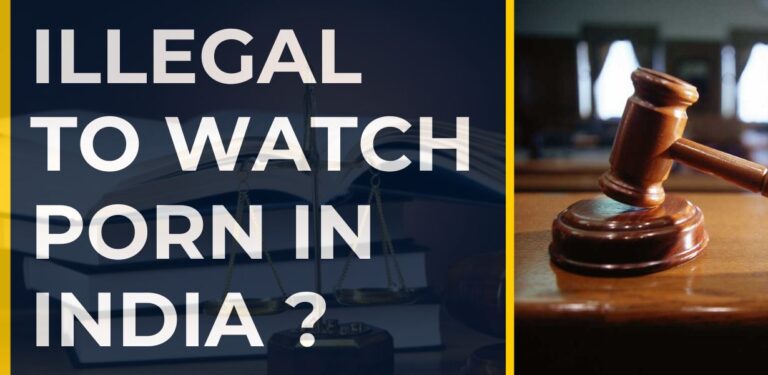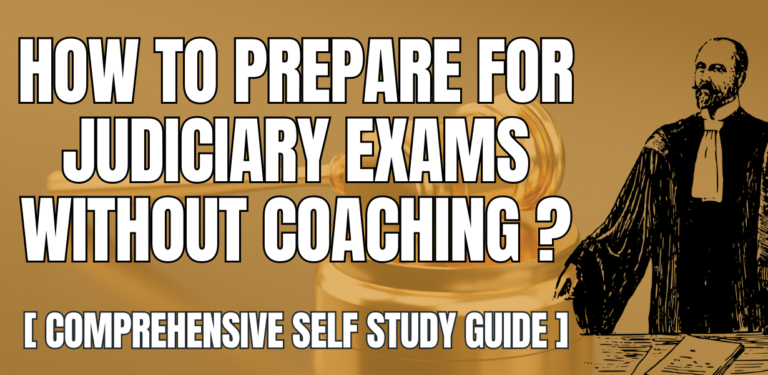List of Most Important 150 Landmark Judgments: Essential Reading for Judiciary Exams

As you prepare for your judiciary exams, understanding landmark judgments is crucial. These significant court decisions have not only shaped the legal landscape but have also influenced the interpretation and application of laws.
Landmark judgments serve as a cornerstone for case laws, often cited in legal arguments and judgments.
This compilation of the most important 150 landmark judgments is essential for your preparation, as each one has played a pivotal role in evolving the jurisprudence and governance of society.

Your grasp of these judgments will demonstrate your ability to comprehend complex legal principles and their practical implications.
They cover a variety of topics that reflect the dynamic nature of the law and its interaction with social change.
As you engage with these significant rulings, you’ll build a solid foundation in legal knowledge that will be instrumental for your exams and your future legal career.
Foundational Judgments
In preparing for judiciary exams, understanding judgments is crucial. These landmark decisions have shaped the interpretation and application of law.
They serve as cornerstones, frequently cited and referenced in legal arguments and judgments.
List of 150 Important Judgments

When preparing for judiciary exams, you need to be familiar with landmark rulings that have shaped the legal landscape.
These judgments have not only shaped the interpretation and application of law but also had far-reaching implications on society, governance, and individual rights.
Below is a curated list of 150 landmark judgments, which have left an indelible mark on Indian jurisprudence. This list provides a glimpse into the rich legal heritage of India and its evolution over the years:
- Rudul Sah v. State of Bihar (1983) – Compensation to the victim of unlawful imprisonment.
- D.K. Basu v. State of West Bengal (1997) – Guidelines for police arrest.
- State of T.N. v. Nalini (1999) – Rajiv Gandhi assassination case.
- Mukesh & Anr v. State for NCT of Delhi & Ors (2012) – Nirbhaya case, guidelines on women’s safety.
- Selvi & Ors v. State of Karnataka (2010) – Use of narco-analysis, brain mapping.
- Shafin Jahan v. Asokan K.M. & Ors (2018) – Hadiya marriage case.
- Joseph Shine v. Union of India (2018) – Decriminalization of adultery.
- Navtej Singh Johar v. Union of India (2018) – Decriminalization of homosexuality.
- Arnesh Kumar v. State of Bihar & Anr (2014) – Guidelines for arrest under section 498A IPC.
- Nandini Satpathy v. P.L. Dani (1978) – Rights of the accused during interrogation.
- Golaknath v. State of Punjab (1967) – Parliament’s power to amend the constitution.
- Maneka Gandhi v. Union of India (1978) – Expansion of Article 21 (Right to Life and Liberty).
- Union Carbide Corporation v. Union of India (1989) – Bhopal Gas Tragedy case.
- S.P. Gupta v. President of India (1981) – Judges’ transfer case.
- Shayara Bano v. Union of India (2017) – Triple Talaq case.
- Indian Young Lawyers Association v. State of Kerala (2018) – Sabarimala case.
- Puttaswamy v. Union of India (2017) – Right to Privacy.
- Shreya Singhal v. Union of India (2015) – Freedom of speech online.
- Ram Janmabhoomi Case (2019) – Ayodhya dispute resolution.
- Shah Bano Begum v. Mohammed Ahmed Khan (1985) – Right of alimony to Muslim women.
- Vineeta Sharma v. Rakesh Sharma (2020) – Daughters’ rights in Hindu Undivided Family property.
- B.K. Pavitra v. Union of India (2019) – Reservation in promotions in public posts.
- Mary Roy v. State of Kerala (1986) – Women’s inheritance rights in Syrian Christian family.
- Joginder Kumar v. State of UP (1994) – Rights of arrested persons.
- Gaurav Jain v. Union of India (1997) – Rights of children of sex workers.
- Vishaka v. State of Rajasthan (1997) – Sexual harassment at workplace guidelines.
- Bachan Singh v. State of Punjab (1980) – Constitutionality of the death penalty.
- Nilabati Behera v. State of Orissa (1993) – Compensation for custodial death.
- Lalita Kumari v. Govt. of U.P. (2013) – Mandatory registration of FIR.
- Prakash Singh v. Union of India (2006) – Police reforms.
- Ramlila Maidan Incident v. Home Secretary, Union Of India (2012) – Right to peaceful protest.
- I.R. Coelho v. State of Tamil Nadu (2007) – Property rights and constitutional amendments.
- Union of India v. Association for Democratic Reforms (2002) – Disclosure of criminal antecedents by candidates in elections.
- People’s Union for Civil Liberties v. Union of India (2004) – Right to Information Act as a tool for transparency.
- Namit Sharma v. Union of India (2013) – Guidelines for the functioning of the Information Commission.
- State of Tamil Nadu v. Nalini (1999) – Rajiv Gandhi assassination case, use of TADA.
- Rudul Sah v. State of Bihar (1983) – Compensation for wrongful imprisonment.
- Mukesh & Anr v. State for NCT of Delhi & Ors (2012) – Nirbhaya gang rape and murder case.
- Vishaka v. State of Rajasthan (1997) – Guidelines for prevention of sexual harassment at the workplace.
- Bachan Singh v. State of Punjab (1980) – Constitutionality of the death penalty.
- Macchi Singh v. State of Punjab (1983) – Guidelines for imposing the death penalty.
- Selvi & Ors. v. State of Karnataka (2010) – Legality of narco analysis, brain mapping, and polygraph tests.
- Arnesh Kumar v. State of Bihar & Anr (2014) – Guidelines for arrest under Section 498A IPC.
- Joginder Kumar v. State of Uttar Pradesh (1994) – Rights of arrested persons to inform someone.
- Nilabati Behera v. State of Orissa (1993) – Award of compensation for custodial death.
- Gaurav Jain v. Union of India (1997) – Rehabilitation of children of prostitutes.
- Rajesh Sharma & Ors v. State of U.P. & Anr (2017) – Preventing misuse of Section 498A IPC.
- Justice K.S. Puttaswamy (Retd.) vs Union Of India And Ors (2017) – Right to Privacy.
- Public Interest Foundation & Ors v. Union of India (2019) – Criminalization of politics.
- Tuka Ram And Anr vs State Of Maharashtra (1979) – Mathura custodial rape case.
- Shakti Vahini v. Union of India (2018) – Directions to prevent honor killings.
- Kartar Singh v. State of Punjab (1994) – Constitutionality of TADA.
- Zahira Habibulla H. Sheikh and Anr v. State of Gujarat and Ors (2004) – Best Bakery case, witness protection.
- State of Maharashtra vs. Rajendra Jawanmal Gandhi (1997) – Guidelines for death penalty cases.
- Om Prakash v. State of Haryana (2014) – Misuse of dowry laws.
- Nandini Satpathy v. P.L. Dani & Anr (1978) – Right against self-incrimination.
- Amar Singh vs Balwinder Singh (2003) – Interpretation of Section 34 IPC.
- Sushil Sharma v. The State (NCT of Delhi) (2014) – Tandoor murder case.
- R v. Secretary of State for the Home Department, ex parte Simms (1999) – Prisoners’ rights to communicate with media.
- Kehar Singh & Ors v. State (Delhi Admin) (1988) – Indira Gandhi assassination case.
- Rupan Deol Bajaj v. Kanwar Pal Singh Gill (1995) – Sexual harassment of an IAS officer.
- State of Maharashtra v. Madhukar Narayan Mardikar (1991) – Right of a woman to be treated with decency and dignity.
- Common Cause (A Regd. Society) v. Union of India & Ors (2018) – Legality of passive euthanasia.
- Laxmi v. Union of India & Ors (2014) – Guidelines regarding acid attacks.
- State of Punjab v. Gurmit Singh & Ors (1996) – Protecting the identity of rape victims.
- Indra Sawhney & Others v. Union of India (1992) – Reservation policy and the definition of “creamy layer”.
- M.C. Mehta v. Union of India (1987) – Environmental law (Oleum gas leak case and the concept of Absolute Liability).
- Olga Tellis & Others v. Bombay Municipal Corporation (1985) – Right to livelihood under Article 21.
- Maneka Gandhi v. Union of India (1978) – Expansion of the right to life and personal liberty under Article 21.
- Rajagopal v. State of Tamil Nadu (1994) – Right to privacy as implicit in the right to life and liberty.
- A.K. Gopalan v. State of Madras (1950) – Interpretation of the right to personal liberty.
- R. Rajagopal v. State of T.N. (1994) – Freedom of the press and the right to privacy.
- Shayara Bano v. Union of India (2017) – Triple talaq is unconstitutional.
- M.C. Mehta v. Union of India (Taj Mahal Case, 1996) – Protection of historical monuments.
- S.R. Bommai v. Union of India (1994) – Limitations on the president’s power to dismiss state governments.
- Justice K.S. Puttaswamy (Retd.) and Anr. v. Union of India and Ors. (2017) – Right to Privacy.
- Navtej Singh Johar & Ors. v. Union of India (2018) – Decriminalization of homosexuality.
- Shreya Singhal v. Union of India (2015) – Freedom of speech online.
- Danial Latifi & Anr v. Union of India (2001) – Constitutional validity of the Muslim Women (Protection of Rights on Divorce) Act.
- Lily Thomas v. Union of India (2000) – Conversion to Islam for a second marriage is invalid.
- Indian Young Lawyers Association v. State of Kerala (2018) – Women’s entry into Sabarimala Temple.
- Aruna Ramchandra Shanbaug v. Union of India (2011) – Legalization of passive euthanasia.
- Vineeta Sharma v. Rakesh Sharma (2020) – Equal coparcenary rights to daughters in Hindu Undivided Family property.
- NALSA v. Union of India (2014) – Legal recognition of transgender persons and their rights.
- Animal Welfare Board of India v. A. Nagaraja & Ors (2014) – Animal rights and the legality of Jallikattu.
- I.R. Coelho (Dead) By LRs v. State of Tamil Nadu (2007) – Doctrine of Severability and the Ninth Schedule.
- Olga Tellis v. Bombay Municipal Corporation (1985) – Right to shelter as part of the right to life.
- PUCL v. Union of India (2003) – Right to food as part of the right to life.
- T.M.A. Pai Foundation v. State of Karnataka (2002) – Rights of minorities to establish and administer educational institutions.
- Bandhua Mukti Morcha v. Union of India (1984) – Case against bonded labor.
- People’s Union for Civil Liberties (PUCL) v. Union of India (1997) – Telephone tapping and privacy rights.
- Vellore Citizens Welfare Forum v. Union of India (1996) – Introduction of the ‘Precautionary Principle’ and ‘Sustainable Development’ in environmental law.
- Apparel Export Promotion Council v. A.K. Chopra (1999) – Sexual harassment at the workplace.
- Mohini Jain v. State of Karnataka (1992) – Right to education as a part of the right to life.
- Unnikrishnan JP v. State of Andhra Pradesh (1993) – Elaboration on the right to education.
- Balaji Raghavan v. Union of India (1996) – National awards not titles under Article 18 of the Constitution.
- Ahmedabad St. Xavier’s College Society v. State of Gujarat (1974) – Minority institutions’ rights.
- M. Nagaraj & Others v. Union of India & Others (2006) – Reservation in promotion in public employment.
- Secretary, State of Karnataka and Ors. v. Umadevi and Ors. (2006) – Regularization of temporary employees.
- Laxmi v. Union of India & Ors (2014) – Guidelines for acid attack victim compensation.
- Jindal Stainless Ltd v. State of Haryana (2017) – Entry tax’s validity in relation to the freedom of trade.
- Indira Sawhney v. Union of India (1992) – Clarification on the scope and extent of reservations.
- R. M. D. Chamarbaugwalla v. Union of India (1957) – Doctrine of severability in the context of gambling.
- Golak Nath v. State of Punjab (1967) – Parliament’s power to amend the Constitution.
- K. S. Puttaswamy (Retd.) v. Union of India (2015) – Right to Privacy as an intrinsic part of the Right to Life and Personal Liberty.
- A.K. Gopalan v. State of Madras (1950) – Interpretation of Article 21 – Right to life and personal liberty.
- Shivakant Shukla v. Union of India (ADM Jabalpur Case, 1976) – Rights during the Emergency period.
- Minerva Mills v. Union of India (1980) – Limitation on the power of Parliament to amend the Constitution.
- I.C. Golaknath & Ors v. State of Punjab & Anrs (1967) – Constitution amendment and fundamental rights.
- Suresh Kumar Koushal and another v. NAZ Foundation and others (2013) – Upheld the constitutionality of Section 377, later overturned by Navtej Singh Johar & Ors. v. Union of India.
- National Legal Services Authority v. Union of India (2014) – Recognition of the third gender.
- Prakash & Ors v. Phulavati & Ors (2015) – Rights under the Hindu Succession (Amendment) Act, 2005.
- Rajesh Sharma & ors v. State of U.P.& Anr (2017) – Prevention of misuse of 498A IPC.
- Justice R.S. Sodhi (Retd.) v. State of U.P. & Ors (2006) – Protection of judicial officers.
- Union of India v. Association for Democratic Reforms (2002) – Disclosure of criminal and financial background by candidates in elections.
- Subhash Kashinath Mahajan v. State of Maharashtra (2018) – Guidelines to prevent misuse of SC/ST (Prevention of Atrocities) Act, 1989.
- Independent Thought v. Union of India (2017) – Criminalizing sex with a minor wife.
- Pandurang Ganpati Chaugule & Ors. v. Vishwasrao Patil Murgud Sahakari Bank Limited (2020) – Co-operative banks under the regulatory purview of the RBI.
- Internet and Mobile Association of India v. Reserve Bank of India (2020) – Supreme Court sets aside RBI’s circular banning banking services for cryptocurrency transactions.
- Joseph Shine v. Union of India (2018) – Decriminalizes adultery, making it no longer a criminal offense.
- Indian Young Lawyers Association & Ors. v. The State of Kerala & Ors. (2018) – Women of all ages allowed entry into Sabarimala Temple.
- Shreya Singhal v. Union of India (2015) – Striking down Section 66A of the IT Act, which was related to freedom of speech online.
- Lalita Kumari v. Government of Uttar Pradesh & Ors. (2013) – Mandatory registration of FIRs under Section 154 of the Criminal Procedure Code.
- National Legal Services Authority v. Union of India (2014) – Legal recognition of transgender persons and their right to self-identify.
- Suresh Kumar Koushal & Anr v. NAZ Foundation & Ors (2013) – Initially upheld Section 377 of IPC, later overruled by Navtej Singh Johar case.
- Selvi & Ors. v. State of Karnataka (2010) – Held that narcoanalysis, brain-mapping, and polygraph tests cannot be conducted on any person without their consent.
- Rameshwar Prasad & Ors v. Union of India & Anr (2006) – Related to the imposition of President’s Rule in Bihar.
- Zahira Habibullah Sheikh & Anr v. State of Gujarat & Ors (2004) – Best Bakery case, concerning retrial outside Gujarat for a fair trial.
- Sarla Mudgal, President, Kalyani & Ors v. Union of India & Ors (1995) – Bigamy and conversion to Islam without first dissolving the first marriage under Hindu law is invalid.
- M.C. Mehta & Anr v. Union of India & Ors (1987) – The case of environmental law concerning Oleum gas leak from Shriram Food and Fertilizers.
- Maneka Gandhi v. Union of India & Anr (1978) – Passport impoundment and personal liberty under Article 21.
- Kesavananda Bharati Sripadagalvaru & Ors v. State of Kerala & Anr (1973) – Basic structure doctrine of the Constitution.
- Union Carbide Corporation v. Union of India (1989) – Bhopal Gas Tragedy case, concerning liability and compensation.
- T.M.A. Pai Foundation & Ors v. State of Karnataka & Ors (2002) – Autonomy of private educational institutions.
- Rupa Ashok Hurra v. Ashok Hurra & Anr (2002) – Introduced the concept of curative petitions in the Indian legal system.
- Prakash v. Phulavati (2015) – Clarification on the Hindu Succession (Amendment) Act 2005, regarding the rights of daughters to ancestral property.
- State of Tamil Nadu v. Suhas Katti (2004) – India’s first conviction under the IT Act for posting obscene messages online.
- Om Prakash v. State of Haryana (2014) – Guidelines on dealing with cases of dowry harassment.
- Sakshi v. Union of India (2004) – Broadened the definition of sexual assault and included acts beyond penile-vaginal penetration.
- Aruna Shanbaug v. Union of India (2011) – Legal criteria for passive euthanasia in India.
- Vishaka & Others v. State of Rajasthan & Others (1997) – Sexual harassment at the workplace guidelines before the enactment of specific legislation.
- Rajesh Sharma & Others v. State of Uttar Pradesh & Another (2017) – Guidelines to prevent misuse of Section 498A IPC.
- Arnesh Kumar v. State of Bihar & Anr (2014) – Need for police to follow due process in arrest to prevent misuse of Section 498A IPC.
- Selvi & Ors. v. State of Karnataka & Anr. (2010) – Rights against forced narco-analysis, brain mapping, and polygraph tests.
- Subramanian Swamy v. Union of India, Ministry of Law & Ors (2016) – Upheld the constitutionality of criminal defamation.
- Bachan Singh v. State of Punjab (1980) – Upheld the constitutionality of the death penalty in the ‘rarest of rare’ cases.
- Gaurav Jain v. Union of India (1997) – Concerning the rights of children of prostitutes.
- Kartar Singh v. State of Punjab (1994) – Constitutionality of the Terrorist and Disruptive Activities (Prevention) Act (TADA), 1987.
- Tukaram v. State of Maharashtra (1979, Mathura Rape Case) – Custodial rape case that led to changes in rape laws.
- Vishal Yadav v. State of Uttar Pradesh (2012, Nitish Katara murder case) – Honour killing and influence of evidence in sentencing.
- State of Punjab v. Gurmit Singh & Ors (1996) – Guidelines for court behavior in rape cases to shield the victim from embarrassment.
- Sushil Sharma v. The State (Delhi Admin) (2014, Tandoor Murder Case) – Conviction in a high-profile murder case.
- Githa Hariharan & Anr v. Reserve Bank of India & Anr (1999) – Mother as a natural guardian.
- Shakti Vahini v. Union of India (2018) – Directions to prevent honor killings.
- Common Cause (A Regd. Society) v. Union of India & Anr (2018) – Legalization of passive euthanasia.
- Nirbhaya Case (Mukesh & Anr v. State for NCT of Delhi & Ors, 2017) – Sentencing guidelines in gang rape and murder case.
Your exam preparation should include a thorough analysis of each case, understanding the facts, legal questions, the court’s reasoning, and the implications of the decision.
This list is a starting point for your comprehensive review.
Why Judgments are Important for Exams?

Studying landmark judgments is essential for you if you’re preparing for judiciary exams. Landmark judgments offer insights into how legal principles are applied in complex situations and set precedents for future cases.
Here are key reasons you need to understand these judgments:
- Foundation of Legal Knowledge: They encapsulate a vast array of legal concepts, ensuring you have a robust understanding of the law.
- Application of Law: Through these judgments, you learn the application of law to various factual settings, which is crucial for answering hypothetical problem questions.
- Analytical Skills: Evaluating these judgments refines your analytical and critical thinking skills, as you discern legal reasoning and argumentation.
- Updates in Law: Landmark cases often result in changes or advancements in the law. Awareness of these changes keeps your legal knowledge current.
- Adjudication Trends: Analysis of past judgments provides an overview of how judges approach certain issues and legal dilemmas.
- Scoring: Your grasp of significant judgments can directly influence your scores, as questions often revolve around them.
The table below highlights the components of landmark judgments significant for your exams:
| Component | Significance |
|---|---|
| Ratio Decidendi | the rule of law on which a judicial decision is based. |
| Obiter Dicta | Contains persuasive comments that may hint at future legal developments. |
| Judicial Reasoning | Helps you understand the ‘why’ behind decisions. |
| Dissenting Opinions | Offers alternative viewpoints and enriches your understanding of the debate. |
Conclusion
Studying the most important landmark judgments is crucial for your success in judiciary exams. These decisions have not only shaped the legal landscape but are also central to understanding the judicial reasoning and application of laws.
- Breadth of Knowledge: You gain insights into Constitutional Law, Criminal Law, Civil Law, and more.
- Analytical Skills: By reviewing these judgments, you enhance your ability to analyze complex legal issues.
- Case Law Application: Familiarity with these judgments aids in better case law application during your exams.
- Precedents: These cases set precedents. You need to grasp how they influence new cases and legislation.
Remember, Judiciary Exams test not just your memory but the depth of your comprehension. Focus on the principles and outcomes of these cases. Use them as a tool to develop a robust legal acumen.
Your familiarity with landmark judgments will demonstrate your preparedness to assume the responsibilities of a Judicial Officer. It’s not just about passing the exam but also about weaving the fabric of justice in the future. All the Best!






